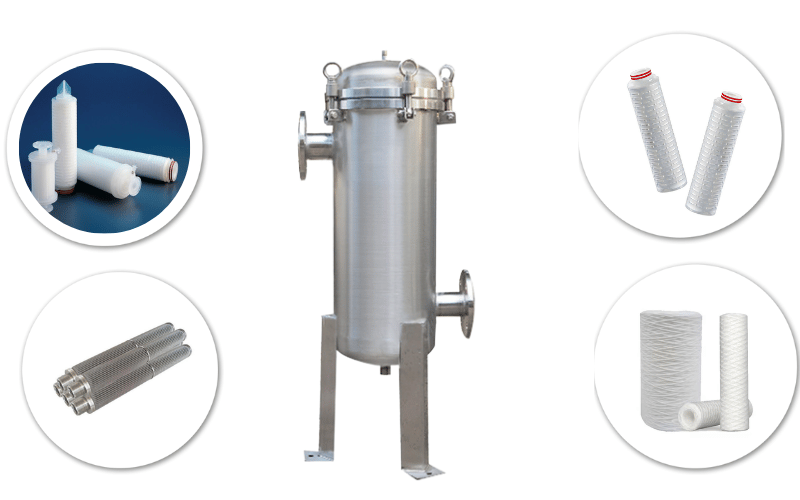Cartridge filters play a crucial role in filtration systems, offering efficient and reliable solutions for removing impurities across various applications. Their versatility and effectiveness make them an essential component in industries ranging from water treatment to manufacturing. This guide is designed to help you select the right cartridge filter, ensuring it meets your specific requirements and delivers optimal performance.
Table of Contents
ToggleUnderstanding Cartridge Filters: Definition, Components, and Functionality
What Are Cartridge Filters?
Cartridge filters are essential tools in filtration systems, designed to remove contaminants and impurities from liquids or gases. These filters are widely used across various industries due to their efficiency, ease of use, and adaptability to different applications. At their core, cartridge filters consist of a cylindrical filter element that traps unwanted particles, ensuring cleaner and safer outputs.
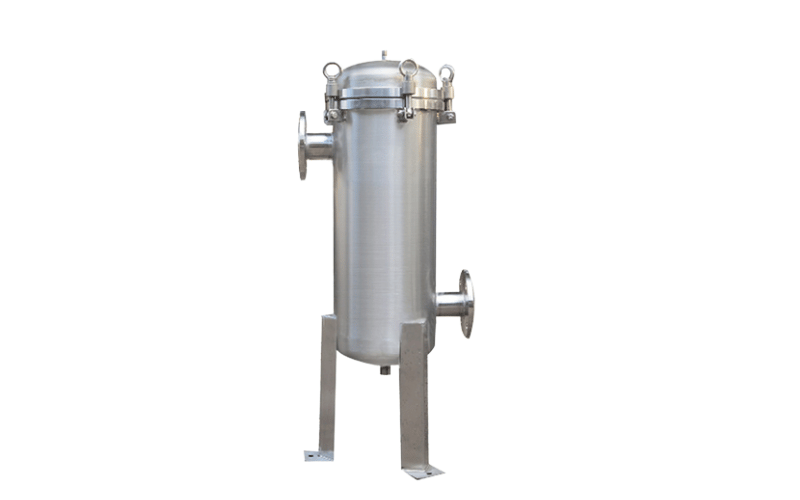
Key Components of Cartridge Filters
Cartridge filters are composed of two primary parts: the filter housing and the filter cartridge. The filter housing serves as the outer shell, providing structural support and protecting the internal components. It is typically made from durable materials like stainless steel, plastic, or other corrosion-resistant substances, depending on the application. Inside the housing lies the filter cartridge, the heart of the system, which is responsible for capturing impurities. These cartridges come in various materials, such as pleated paper, woven fabric, or polypropylene, each tailored to specific filtration needs.
How Do Cartridge Filters Work?
The operation of a cartridge filter is straightforward yet highly effective. As the fluid or gas flows through the filter housing, it passes through the filter cartridge. The cartridge’s porous material traps particles, debris, and contaminants, allowing only the purified substance to exit the system. Depending on the design and material of the cartridge, these filters can target a wide range of impurities, from large sediment particles to microscopic contaminants. This process ensures consistent filtration performance, making cartridge filters a reliable choice for maintaining quality and safety in various applications.
Exploring Different Types of Cartridge Filters and Their Applications
PP Cartridges: High-Flow Filtration for General Use
Polypropylene (PP) cartridges are widely recognized for their versatility and efficiency in general filtration tasks. These filters are constructed from thermally bonded polypropylene fibers, which provide excellent chemical resistance and durability. PP cartridges are particularly effective in applications requiring high flow rates, such as water treatment, food processing, and industrial systems. Their ability to handle a broad range of contaminants makes them a popular choice for both residential and commercial use.
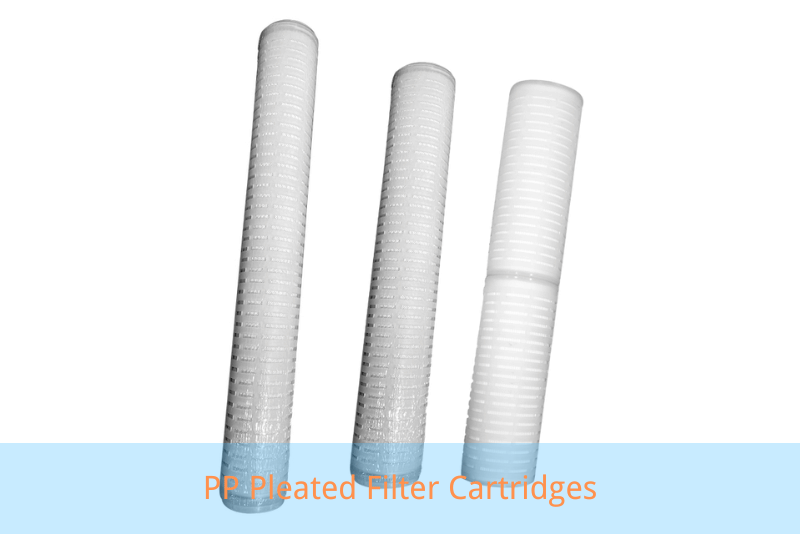
Wound Cartridges: Targeting Suspended Solids
Wound cartridges are designed to tackle the challenge of removing suspended solids from liquids. These filters are made by tightly winding a yarn-like material around a central core, creating a depth filter with multiple layers. This structure allows them to capture particles of varying sizes, making them ideal for applications like pre-filtration in reverse osmosis systems, cooling tower water treatment, and industrial processes. Their robust design ensures a longer lifespan and consistent performance in demanding environments.
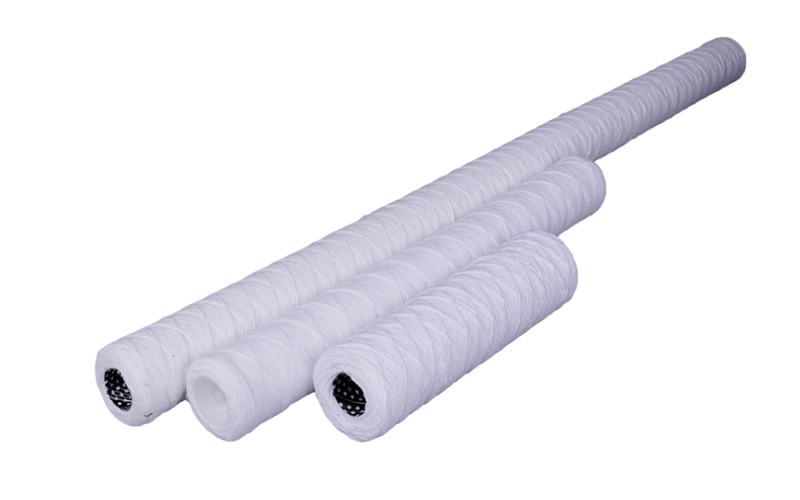
Activated Carbon Cartridges: Eliminating Odors and Organic Impurities
Activated carbon cartridges are specialized filters that excel at absorbing odors, tastes, and organic contaminants from liquids and gases. These filters use activated carbon granules or blocks, which have a high surface area to effectively trap impurities like chlorine, volatile organic compounds (VOCs), and other chemical pollutants. Commonly used in drinking water purification, food and beverage production, and air filtration systems, activated carbon cartridges enhance the quality and safety of the output by removing unwanted substances.
RO Cartridges: Advanced Purification for Critical Applications
Reverse osmosis (RO) cartridges are engineered for advanced filtration, targeting microscopic impurities such as bacteria, viruses, and heavy metals. These filters are a key component of RO systems, which use a semi-permeable membrane to separate contaminants from water. RO cartridges are essential in applications requiring ultra-pure water, such as medical facilities, laboratories, and semiconductor manufacturing. Their ability to deliver high levels of purification makes them indispensable in environments where water quality is critical.
Stainless Steel Cartridges: Durable Solutions for Extreme Conditions
Stainless steel cartridges are built for durability and reusability, making them suitable for extreme conditions and high-temperature applications. These filters are constructed from stainless steel mesh or perforated sheets, offering excellent resistance to corrosion and mechanical stress. Stainless steel cartridges are commonly used in industries like oil and gas, chemical processing, and power generation, where robust filtration solutions are required. Their washable and reusable design also makes them a cost-effective option for long-term use.
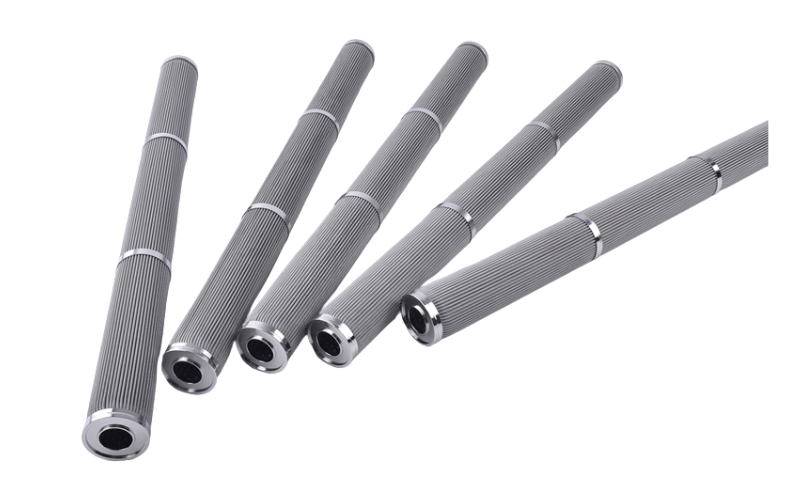
Comparing Cartridge Filter Types and Their Applications
Each type of cartridge filter is tailored to specific needs, offering unique advantages based on the application. PP cartridges are ideal for general-purpose filtration with high flow rates, while wound cartridges excel at removing suspended solids. Activated carbon filters are ideal for enhancing taste and odor, while RO cartridges offer advanced purification for sensitive environments. Stainless steel cartridges stand out for their durability and suitability for harsh conditions. By understanding the strengths and applications of each type, users can select the most appropriate filter to meet their specific requirements.
Essential Factors to Evaluate When Selecting a Cartridge Filter
Filtration Precision: The Role of Micron Ratings
One of the most critical aspects to consider when choosing a cartridge filter is its filtration precision, often defined by its micron rating. Micron ratings indicate the size of particles the filter can capture, ranging from coarse filtration (50 microns or more) to fine filtration (1 micron or less). For example, applications like sediment removal in water systems may require a higher micron rating, while processes involving bacteria or fine contaminants demand lower ratings. Understanding the specific filtration needs of your system ensures optimal performance and prevents unnecessary wear on downstream equipment.
Material Compatibility: Aligning Filter Material with Application Needs
The material of the cartridge filter plays a significant role in its effectiveness and longevity. Different materials, such as polypropylene, stainless steel, or activated carbon, are suited for specific liquids or gases. For instance, polypropylene is resistant to a wide range of chemicals, making it ideal for general-purpose filtration, while stainless steel is better suited for high-temperature or corrosive environments. Ensuring compatibility between the filter material and the substance being filtered prevents degradation, maintains efficiency, and extends the filter’s lifespan.
Flow Rate Requirements: Meeting System Performance Demands
Flow rate is another vital factor to consider when selecting a cartridge filter. The filter must be capable of handling the volume of liquid or gas passing through the system without causing pressure drops or bottlenecks. Filters with higher flow rate capacities are essential for industrial applications, while smaller systems may require filters designed for lower flow rates. Evaluating the system’s flow rate requirements ensures smooth operation and prevents potential disruptions caused by inadequate filtration capacity.
Operating Conditions: Adapting to Pressure, Temperature, and Chemicals
Cartridge filters must be selected with the system’s operating conditions in mind. Factors such as pressure, temperature, and chemical exposure can significantly impact the filter’s performance and durability. For example, high-pressure systems require filters with robust housings and materials, while high-temperature applications may necessitate stainless steel cartridges. Additionally, exposure to aggressive chemicals demands filters made from resistant materials to prevent breakdown or contamination. Assessing these conditions ensures the filter can withstand the environment and deliver consistent results.
Ease of Maintenance: Simplifying Cleaning and Replacement
Maintenance is a key consideration when selecting a cartridge filter, as it directly affects operational efficiency and costs. Filters that are easy to clean or replace reduce downtime and labor expenses. For instance, reusable stainless steel cartridges can be washed and reinstalled, offering long-term cost savings, whereas disposable filters may be more convenient for applications that require frequent replacements. Evaluating the maintenance requirements of a filter helps in choosing a solution that aligns with the system’s operational needs and budget constraints.
Advantages of Cartridge Filters: Efficiency, Versatility, and More
High Filtration Performance for Superior Results
Cartridge filters are renowned for their exceptional ability to remove impurities, ensuring high-quality filtration across a wide range of applications. Their advanced design enables them to capture particles of multiple sizes, ranging from large debris to microscopic contaminants, depending on the filter type. This high filtration efficiency not only improves the quality of the output but also protects downstream equipment from potential damage caused by unfiltered particles, enhancing overall system reliability.
Versatility for Diverse Applications
One of the standout features of cartridge filters is their adaptability to a wide range of industries and processes. Whether used in water treatment, food and beverage production, pharmaceuticals, or industrial manufacturing, these filters can effectively handle a wide range of filtration needs. Their ability to work with various liquids and gases, combined with the availability of different materials and designs, makes them a go-to solution for numerous applications.
Compact Design for Space Optimization
Cartridge filters are designed with a compact and streamlined structure, making them ideal for systems with limited space. Their small footprint allows for easy integration into existing setups without requiring significant modifications. This space-saving design is particularly beneficial in industries where equipment layout and efficiency are critical, such as laboratories, small-scale production facilities, and residential systems.
Customizable Solutions for Specific Requirements
Another key benefit of cartridge filters is their ability to be tailored to meet specific filtration needs. With options for various materials, micron ratings, and configurations, users can select filters that precisely align with their operational needs. For instance, industries requiring high-temperature resistance can opt for stainless steel cartridges, while those focused on removing odors and improving taste can choose activated carbon filters. This level of customization ensures optimal performance and satisfaction.
Cost-effective and Easy to Maintain
Cartridge filters offer a cost-effective solution for filtration thanks to their long lifespan and low maintenance requirements. Many filters, such as stainless steel cartridges, are reusable and can be cleaned multiple times, reducing replacement costs. Even disposable options are designed for quick and hassle-free replacement, minimizing downtime and labor expenses. This combination of affordability and ease of maintenance makes cartridge filters a practical choice for both small-scale and large-scale operations.
Practical Applications of Cartridge Filters Across Industries
Water Treatment: Ensuring Clean and Safe Water
Cartridge filters play a vital role in water treatment processes, effectively removing particulates and impurities from municipal and industrial water systems. These filters are commonly used to eliminate sediment, rust, and other suspended solids, ensuring the water meets quality standards for consumption or industrial use. In municipal systems, they help provide clean drinking water, while in industrial settings, they protect equipment and improve the efficiency of processes that rely on purified water.
Oil and Chemical Processing: Purifying Liquids for Efficiency
In the oil and chemical industries, cartridge filters are essential for removing contaminants from liquids during processing. These filters are designed to handle aggressive chemicals and high temperatures, ensuring the purity of the end product while protecting sensitive equipment from damage. Whether filtering lubricants, solvents, or other chemical solutions, cartridge filters play a crucial role in maintaining operational efficiency and product quality in these demanding environments.
Food and Beverage Production: Guaranteeing Product Purity
Cartridge filters are widely used in the food and beverage industry to ensure the purity and safety of products. They are employed to remove particles, microorganisms, and unwanted flavors or odors from liquids such as water, juices, and alcoholic beverages. By maintaining strict hygiene standards, these filters help manufacturers comply with regulatory requirements and deliver high-quality products to consumers. Their versatility also makes them suitable for various stages of food processing, from raw material filtration to final product refinement.
Pharmaceuticals: Achieving Sterility and Precision
In the pharmaceutical sector, cartridge filters are critical for maintaining sterility and precision in production processes. These filters are used to remove bacteria, viruses, and other contaminants from liquids and gases, ensuring the safety and efficacy of pharmaceutical products. From purifying water for injections to filtering air in cleanrooms, cartridge filters support the stringent quality control measures required in this industry. Their ability to deliver consistent and reliable results makes them indispensable in the pharmaceutical manufacturing industry.
Gas Filtration: Enhancing Safety and System Integrity
Cartridge filters are also employed in gas filtration applications, where they help ensure safety and protect system components. These filters are used to remove particulates, moisture, and other impurities from gases such as compressed air, natural gas, and industrial gases. By maintaining the purity of gases, cartridge filters prevent equipment corrosion, improve system performance, and enhance overall safety. Their robust design and adaptability make them suitable for use in industries ranging from energy production to electronics manufacturing.
Proper Maintenance and Replacement of Cartridge Filters
Step-by-Step Guide to Cleaning and Replacing Filters
Maintaining cartridge filters involves regular cleaning or replacement to ensure optimal performance. Follow these steps for effective maintenance:
- Turn Off the System: Before starting, shut down the filtration system to prevent accidents or contamination.
- Remove the Filter Housing: Carefully unscrew or detach the housing, ensuring no debris falls into the system.
- Inspect the Cartridge: Check the filter for visible dirt, damage, or wear. If it’s reusable, proceed to clean it; if not, replace it with a new one.
- Clean the Cartridge (If Reusable): Rinse the filter under running water or soak it in a cleaning solution suitable for the material. Use a soft brush to remove stubborn debris, but avoid harsh scrubbing that could damage the filter.
- Replace or Reinstall: For disposable filters, insert a new cartridge. For reusable ones, ensure they are completely dry before reinstalling.
- Reassemble and Test: Secure the housing, turn the system back on, and check for leaks or irregularities.
Regularly following this process helps maintain filtration efficiency and system reliability.
Tips for Extending Cartridge Lifespan
To maximize the lifespan of your cartridge filters, consider these best practices:
- Pre-Filtration: Use a pre-filter to capture larger particles, reducing the load on the cartridge.
- Monitor System Pressure: Keep an eye on pressure differentials, as a significant drop may indicate a clogged filter that needs attention.
- Use Compatible Cleaning Agents: Always clean reusable filters with solutions that are safe for the filter material to prevent damage.
- Schedule Maintenance: Establish a routine maintenance schedule based on the system’s usage and operating conditions.
- Store Properly: When not in use, store cartridges in a clean, dry environment to prevent contamination or degradation.
Implementing these tips can significantly reduce replacement frequency and operational costs.
Common Mistakes to Avoid During Maintenance
Avoiding common errors during maintenance can prevent system inefficiencies and costly repairs:
- Delaying Maintenance: Neglecting regular cleaning or replacement can lead to clogged filters, reduced performance, and potential system damage.
- Using Incorrect Cartridges: Installing a filter that doesn’t match the system’s specifications can compromise filtration quality and cause operational issues.
- Over-Cleaning Reusable Filters: Excessive or improper cleaning can wear out reusable cartridges prematurely, reducing their effectiveness.
- Ignoring Manufacturer Guidelines: Always follow the manufacturer’s recommendations for cleaning, replacement, and compatible materials to ensure optimal performance.
- Reassembling Incorrectly: Failing to secure the housing properly can result in leaks or contamination.
By avoiding these pitfalls, you can ensure your cartridge filters operate efficiently and maintain the integrity of your filtration system.
Frequently Asked Questions About Cartridge Filters
What Is the Difference Between PP and Stainless Steel Cartridges?
Polypropylene (PP) and stainless steel cartridges differ primarily in material composition, durability, and application suitability. PP cartridges are made from thermally bonded polypropylene fibers, offering excellent chemical resistance and affordability. They are ideal for general-purpose filtration, such as water treatment and food processing, where moderate temperatures and pressures are involved. On the other hand, stainless steel cartridges are constructed from robust metal mesh or perforated sheets, making them highly durable and reusable. These filters are better suited for high-temperature, high-pressure, or corrosive environments, such as oil refining and chemical processing. Choosing between the two depends on the specific requirements of your filtration system, including operating conditions and the type of contaminants being filtered.
How Often Should Cartridge Filters Be Replaced?
The replacement frequency of cartridge filters depends on several factors, including the type of filter, the level of contamination, and the system’s operating conditions. Disposable filters typically need to be replaced every 1 to 6 months, depending on usage and the manufacturer’s recommendations. Reusable filters, like stainless steel cartridges, can last significantly longer with proper cleaning and maintenance. Monitoring pressure differentials in the system is a reliable way to determine when a filter needs attention—if the pressure drops significantly, it’s time to clean or replace the cartridge. Establishing a regular maintenance schedule ensures consistent performance and prevents system inefficiencies.
What Micron Rating Is Best for My Application?
The ideal micron rating for your application depends on the size of the particles you need to filter. Higher micron ratings, such as 50 microns, are suitable for removing larger particles like sediment or debris, making them ideal for pre-filtration. Lower micron ratings, such as 1 micron or less, are designed for fine filtration, capturing microscopic contaminants like bacteria or fine sediment. For example, drinking water systems often require filters with a 5-micron rating, while pharmaceutical applications may demand sub-micron filtration. Assessing the specific needs of your system and consulting with a filtration expert can help you select the most appropriate micron rating.
Can Cartridge Filters Handle High-Pressure Systems?
Yes, specific cartridge filters are designed to withstand high-pressure systems; however, the choice of filter material and housing is also critical. Stainless steel cartridges are particularly well-suited for high-pressure environments due to their robust construction and resistance to mechanical stress. Additionally, the filter housing must be rated for the system’s pressure to ensure safety and reliability. Always verify the pressure ratings of both the cartridge and the housing before installation to prevent failures or damage. For extremely high-pressure applications, consult with the manufacturer to select a filter engineered explicitly for such conditions.
Final Thoughts
Selecting the right cartridge filter is essential for ensuring optimal performance, efficiency, and longevity in your filtration system. By understanding your specific requirements and considering factors like filtration precision, material compatibility, and operating conditions, you can make an informed decision. If you’re unsure, consulting with experts can provide valuable guidance tailored to your needs. Explore our extensive range of cartridge filters or contact us for personalized recommendations to find the ideal solution for your specific application.


